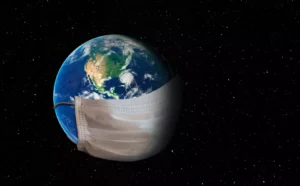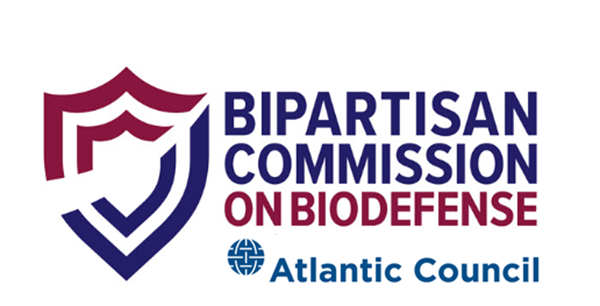Is the U.S. ready for extraterrestrials? Not if they’re microbes. | Opinion
How to defend Earth from space bugs
By Donna Shalala, Susan Brooks
April 11, 2024
Published in the Houston Chronicle

Alien microorganisms could hitchhike on spacecraft or move through the universe in the asteroids they inhabit. They could also be Earth microbes that mutate or evolve in response to spaceflight. 1001slide/Getty Images
Space exploration provides some of the greatest challenges and opportunities of our time. But as we venture further into the unknown, we also expose ourselves to new and previously unforeseen dangers.
While many debate the possibility of advanced, intelligent life elsewhere, few consider the probability of non-intelligent alien microorganisms. These life forms could exist on other planets or moons and hitchhike on spacecraft, or move through the universe in the asteroids they inhabit. They could also be Earth microbes that mutate or evolve in response to the stress of spaceflight, becoming more virulent, resistant or invasive. Either would seriously threaten the public health, safety and security of humans, animals and plants operating in space or living on Earth.
For 10 years now, the Bipartisan Commission on Biodefense, on which we both serve, has closely examined our nation’s vulnerability to biological incidents, such as the the anthrax attacks on the nation’s Capitol and the COVID-19 pandemic that killed millions and destroyed economies around the world. We make specific recommendations to the federal government so that we can better prepare for and respond to these threats.
Astrobiodefense is the defense against biological threats in space and on Earth that result from space exploration. It represents the next frontier — another form of preparedness as we move toward the middle half of the 21st century.
There are two goals: to prevent the contamination of extraterrestrial environments with Earth organisms; and to prevent extraterrestrial or mutated terrestrial microbes from harming Earth’s inhabitants.
As fantastical as it may sound, astrobiodefense is neither hypothetical nor fictional. It is a real challenge that requires urgent attention and action. For the United States, NASA has already started programs to prevent forward and backward contamination, ensure the health and safety of astronauts, and identify and control biological hazards. The Federal Aviation Administration is also responsible for monitoring the payloads of commercial spaceflight and how they might affect public health.
But now, with more missions into space, the potential dangers are mounting. Recent missions, for example, brought specimens back from asteroid Bennu and aimed to drop human remains on the moon. We need to do more and soon.
The U.S. needs to invest in research and development of new technologies and medical countermeasures to detect, diagnose, treat and prevent diseases in space and on Earth. We need to enhance our biosurveillance and symptom monitoring to track and analyze space-related biological threats in real time. We need to strengthen our coordination and collaboration between agencies and partners, both nationally and internationally, to share information and resources without compromising the kind of competition that results in scientific advances and economic gains.
If NASA and other public and private sector space programs throughout the world are going to get us to infinity and beyond, they need more than modest (and fluctuating) budgets, a wing and a prayer. More policymakers and decision-makers in Washington need to understand the importance and benefits of astrobiodefense in particular and the space program in general.
In our pursuit of promise, we have a duty to protect ourselves and our planet from the perils of the unknown, and to preserve and respect the integrity and diversity of life in the universe. By investing in and strengthening astrobiodefense, we can ensure that our quest for discovery does not jeopardize our security and survival. Let’s get ahead of this problem, before we are “go” to launch.
Former Democratic Rep. Donna Shalala served as secretary for Health and Human Services in the Clinton administration. Susan Brooks is a former U.S. attorney and Republican congresswoman who served parts of Indiana. Together they serve on the Bipartisan Commission on Biodefense.
Read in the Houston Chronicle: Is the U.S. ready for extraterrestrials? Not if they’re microbes. (houstonchronicle.com)
